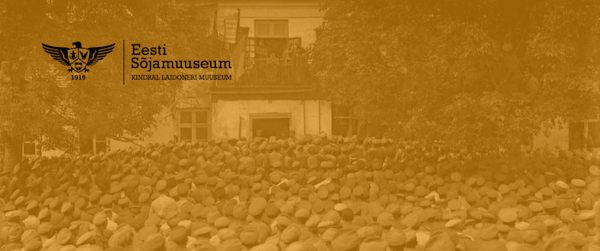Conference


The Estonian War Museum’s 6th Annual Baltic Military History Conference “Europe After the First World War: Birth of National Armies on the Ruins of Empires”
At it’s 6th international military history conference Estonian War Museum brought guests on stage to discuss about the impact of World War I on Europe.
The conference was held both in English as well in Estonian. All the presentations were supported by simultaneous interpretation.
Speakers and their topics
Chosen works can be found in the Estonian War Museums’s yearbook (linked).
- Prof Eriks Jekobsons (Latvian University) – “The battles of the Polish Army against the Red Army in Ilūkste county in Sptember 1919 from Poland’s viewpoint”
- Dr Mart Kuldkepp (Tartu University) – “Sweden, Finland and Baltic German political activism of the immediate post-war period: atonement and aggression “
- Dr Vilma Bukaite (National Museum of ) – “The attitude of the French military mission (1919–1920) to the statehood of Lithuania”
- Edgars Engīzers (National Defence Academy of Latvia) – “Formation of Latvian army: 1918–1921”
- Dr Sergi Tšoli (Kyiv Polytechnic Institute) –“Loyalty crisis and formation of national army in Ukraine in context of three RussoUkrainian wars”
- Michhal Mackiewicz (Polish Army Museum) – “The arsenal of an army reborn: the armament of the Polish Army in 1918–1921”
- Dr Dmitar Tasić (University College Dublin) – “Why some states decide to rely on paramilitaries? Yugoslav example after the Great War”
- Dr Tomas Balkelis (Vilnius University) – “Paramilitarism in Lithuania: violence, civil activism and nation-making after the Great War”
- Jan-Philipp Pomplun (Berlin Institute of Technology) – “Regions of violence, regions of radicalisation? German paramilitary forces in the Baltic states after the Great War”
- Dr Matthias Strohn (University of Buckingham) – “The German army and the conduct of the defensive battle in the inter-war period”
- CPT Aart Nõmm (Estonian Defence League) – “Islands Saaremaa and Hiiumaa in the Estonian military planning”
- LTC Carlo Cetteo Cipriani (Italian Air Force) – “Italian military occupation of Dalmatia from 1918 to 1921, settlement of a part of the Austro-Hungarian Empire”
- Igor Kopõtin (Estonian Military Academy) – “Formations of “Internationalists” in the Red Army during Russian Civil War (1917–1922)”
- Liisi Esse (Tartu University) – “From one war to another: the war experience of Estonian soldiers of the First World War and the War of Independence”
- Dr Igor Caşu (Moldova State University) – “The Bessarabian leaders of the national movement of 1917–1918 and their fate under the first Soviet occupation (1940–1941)

